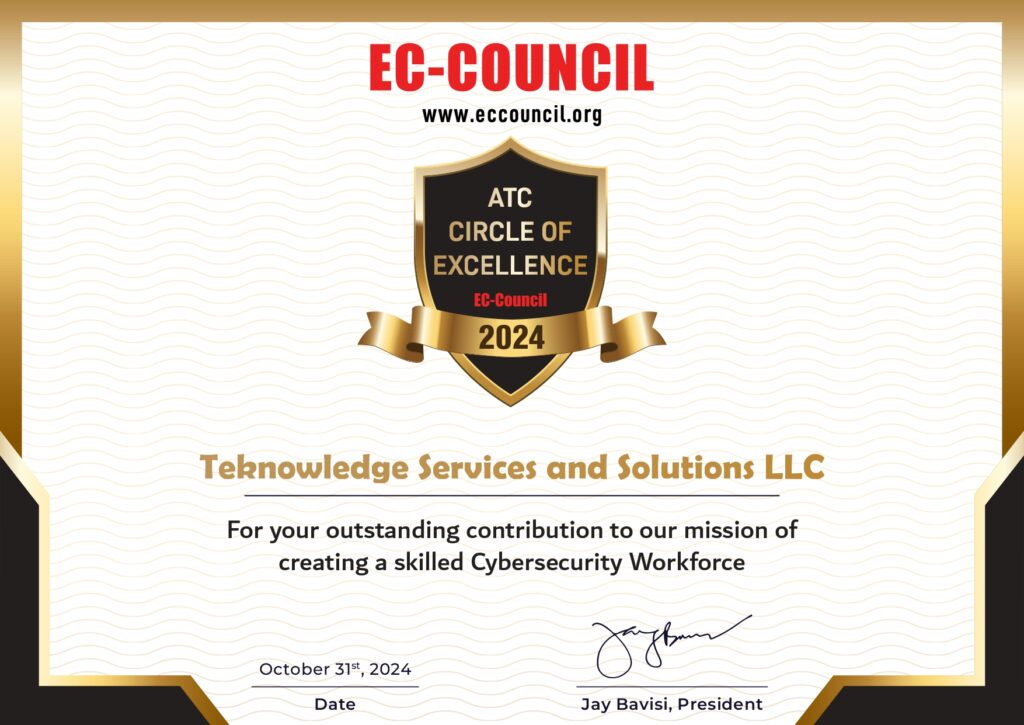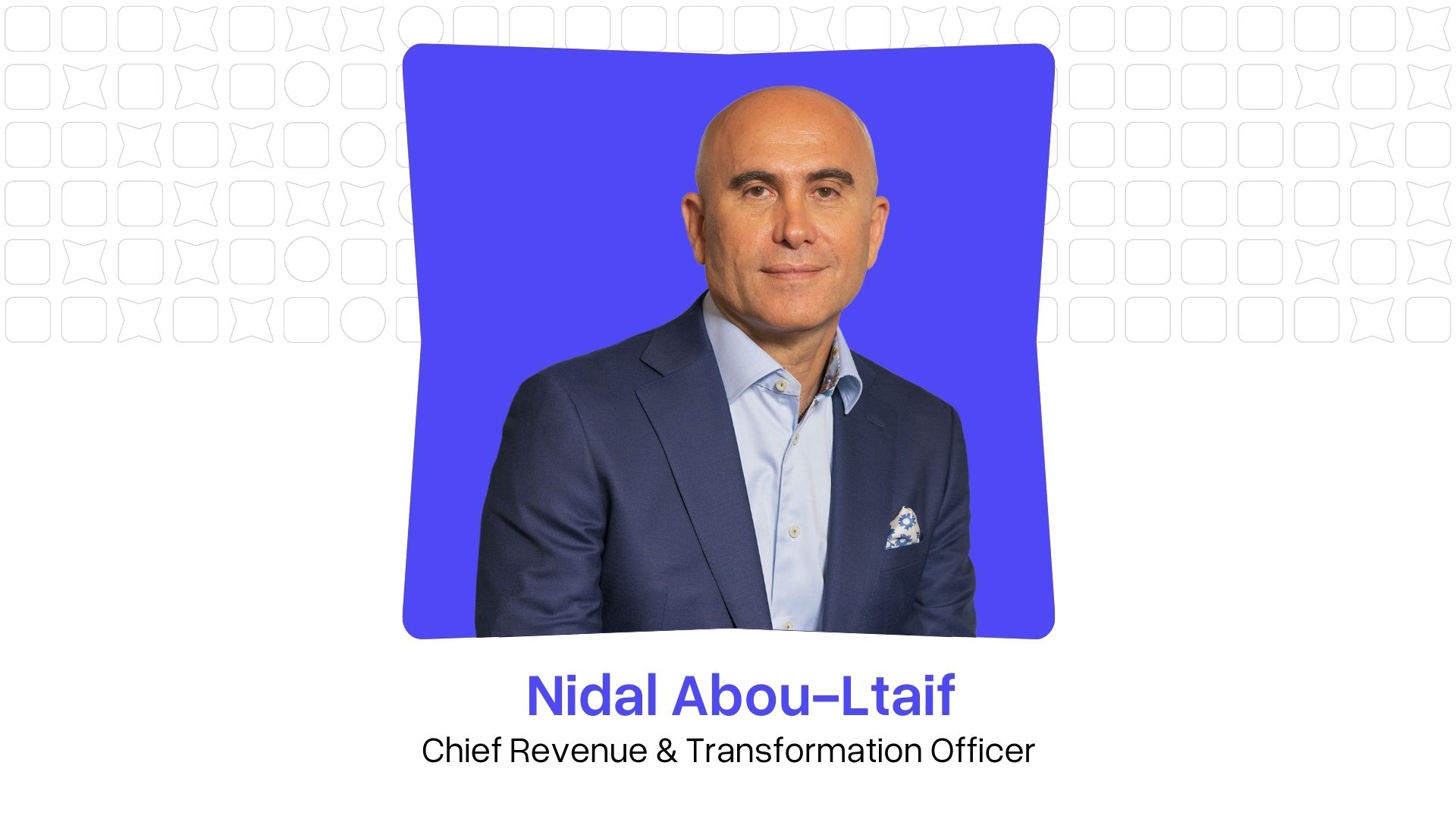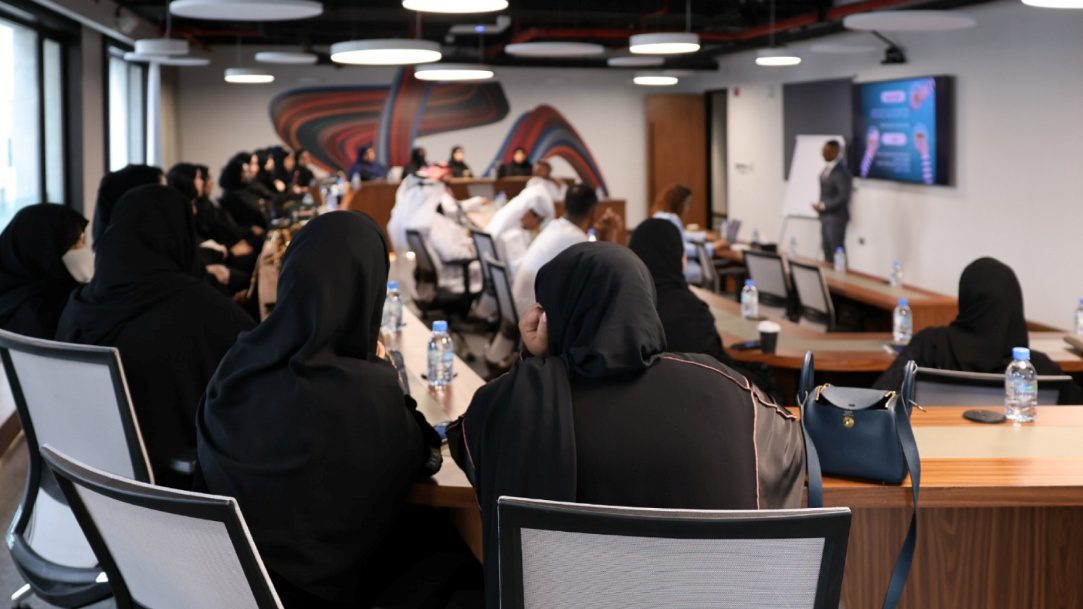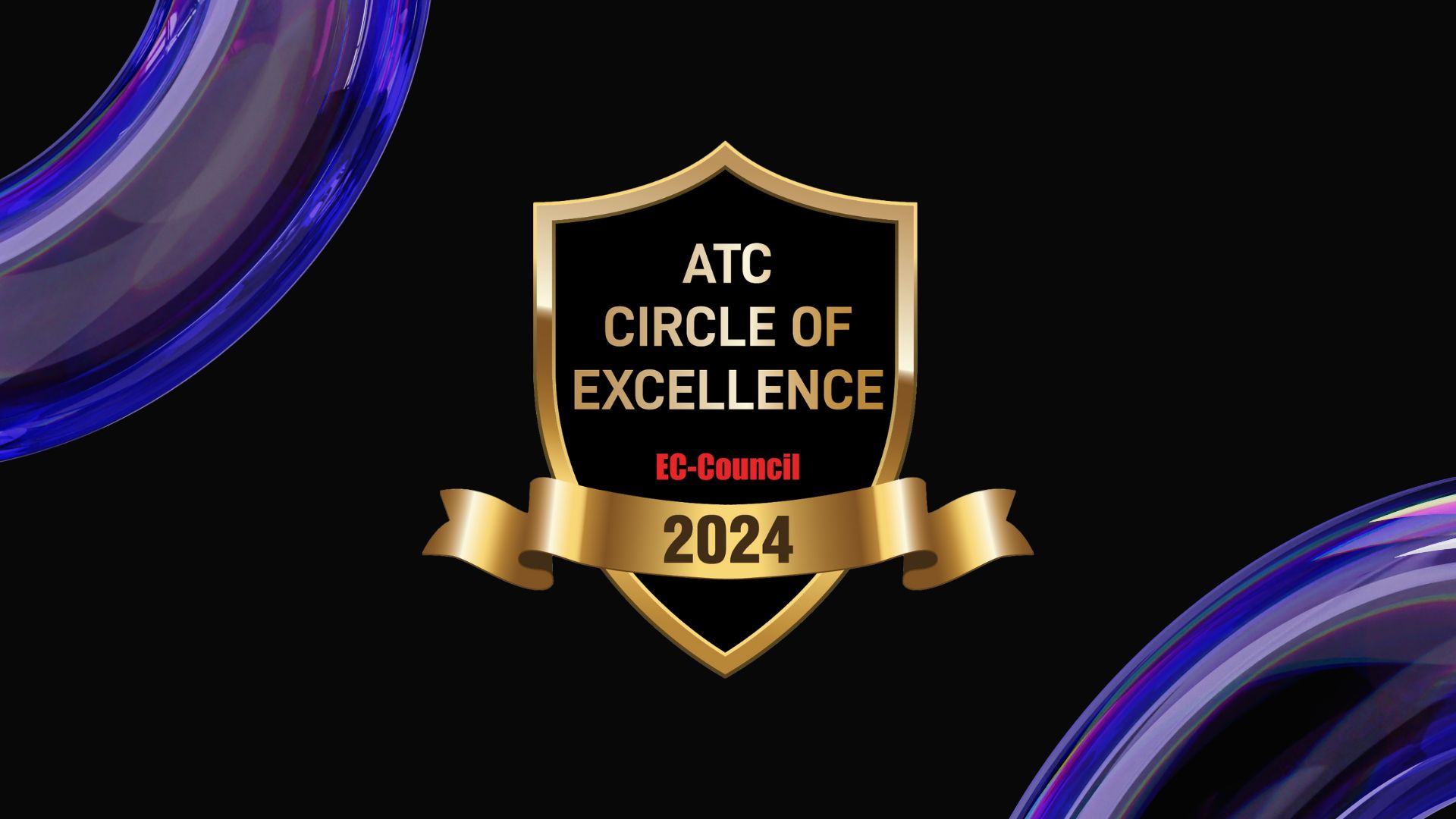Stay Ahead with Expert-Led Insights
Navigating Complexity. Driving Progress. Creating Lasting Impact.
Welcome to the TeKnowledge Insights hub! Here, you’ll find a blend of strategic perspectives, real-world case studies, and expert analysis designed to empower organizations to navigate challenges and seize new opportunities.
Explore the insights that matter most. Stay informed, gain new perspectives, and discover how businesses worldwide are unlocking new opportunities with TeKnowledge.
Stay Ahead with Expert-Led Insights
Navigating Complexity. Driving Progress. Creating Lasting Impact.
Welcome to the TeKnowledge Insights hub! Here, you’ll find a blend of strategic perspectives, real-world case studies, and expert analysis designed to empower organizations to navigate challenges and seize new opportunities.
Explore the insights that matter most. Stay informed, gain new perspectives, and discover how businesses worldwide are unlocking new opportunities with TeKnowledge.
All Categories
The latest developments, strategic partnerships and milestones.
- Thought Leadership
Innovation is rarely a singular moment of genius. Instead, it is a continuum, a process where ideas build upon each other, shaped by collaboration, investment, and human ambition. Today’s transformative technologies—artificial intelligence, biotechnology, quantum computing—are no exception. They are not isolated breakthroughs but the result of centuries of human ingenuity.
Throughout history, the greatest advancements have been cumulative. Medicine evolved from traditional remedies to AI-assisted drug discovery, each step standing on the foundation of past knowledge. The Renaissance, often seen as a burst of creativity, was a culmination of centuries of intellectual exchange. Even in technology, today’s AI models are trained on decades of research in computing, mathematics, and neuroscience.
The discourse around emerging technologies often centres on competition—who leads, who lags, and who controls. Recent debates on innovation governance and technological influence highlight these tensions. But focusing solely on dominance risks missing the bigger picture: innovation is most powerful when it is inclusive and shared. The businesses that thrive are those that embrace this philosophy, fostering environments where knowledge, investment, and human talent converge to drive sustainable progress.
For enterprises, the lesson is clear. Rather than seeking disruption for its own sake, the real opportunity lies in being part of an evolving ecosystem—one that values collaboration over competition and progress over short-term gains. The future of innovation is not defined by single entities but by collective human effort. For businesses and individuals alike, the best way forward is to contribute, adapt, and build upon what has come before.
As Epictetus wisely said, “No great thing is created suddenly.” True progress requires patience, collaboration, and a commitment to the continuous evolution of ideas. Let’s embrace this mindset and shape the future together.
- Blog & Industry Trends
At TeKnowledge, we’ve seen the transformational impact of Artificial Intelligence (AI) across industries. AI is no longer just a tool for automation—it’s a catalyst for innovation, redefining how we work and creating opportunities for growth.
While some fear that AI might replace jobs, the reality is far more optimistic. AI isn’t about replacing people—it’s about empowering them. By automating repetitive tasks and providing deeper insights, AI allows employees to focus on what they do best: solving complex problems, building relationships, and driving value.
At the heart of this transformation lies a simple but critical truth: investing in your employees is essential for delivering exceptional customer experiences and ensuring business resilience.
The Changing Workforce: New Roles and Opportunities
AI is reshaping the workforce by automating routine tasks while creating demand for roles that require creativity, judgment, and strategic thinking. This shift doesn’t diminish the importance of human expertise—it amplifies it.
Roles like AI Ethics Specialists, who ensure algorithms are fair and unbiased, and Cybersecurity Analysts, who use AI to protect sensitive data, are becoming integral to organisations. AI Trainers fine-tune machine learning models, while Sustainability Analysts leverage AI to help businesses meet their environmental goals. And AI Business Strategists are aligning AI implementation with organisational objectives, ensuring technology drives measurable impact.
These roles reflect the exciting opportunities AI is creating. By upskilling employees to fill these positions, businesses don’t just adapt to change—they lead it. Employees who feel prepared and supported are better positioned to deliver meaningful results, both internally and for customers.
Preparing Workforces for the AI Era with TeKnowledge and Microsoft
At TeKnowledge, we believe that preparing employees to embrace AI is the cornerstone of business success. It’s not just about integrating new tools—it’s about fostering a culture where employees feel confident working alongside AI, using it to improve outcomes for customers and the business alike.
Through our partnership with Microsoft, we’ve developed skilling programs that help organisations transform their workforce. As a Microsoft Training Services Partner, TeKnowledge offers certifications in high-demand areas like AI, cloud computing, and cybersecurity. Our programs:
- Equip employees with the knowledge to leverage AI tools like Microsoft 365 Copilot Chat and Microsoft Viva, boosting productivity and collaboration.
- Build trust in AI by showing employees how it complements their roles rather than replaces them.
- Align workforce skilling with organisational goals to ensure employees can meet both operational and customer needs effectively.
One clear example of this approach is our work in Qatar, where the Digital Center of Excellence has trained over 8,000 professionals in AI and cybersecurity, with nearly 50% female participation. Similarly, in Costa Rica, TeKnowledge-led programs have achieved an 80% completion rate, with 82% of graduates securing jobs within three months. These initiatives highlight the transformative power of targeted skilling programs, both at a national and organisational level.
Building the Bridge Between Your Workforce and Your Customers
Investing in employees isn’t just a workforce strategy—it’s a business imperative. There’s a growing body of evidence that highlights the link between employee engagement and customer satisfaction. Employees who feel supported and equipped with the right skills are more engaged, motivated, and capable of delivering exceptional customer experiences.
A recent study found that organisations with highly engaged employees are 21% more profitable and deliver better customer service outcomes. These businesses also see higher customer retention rates, as satisfied employees are more likely to provide consistent and meaningful interactions. (Gallup)
At TeKnowledge, we’ve witnessed this connection firsthand. Businesses that prioritise workforce skilling see improved customer loyalty, reduced operational disruptions, and stronger bottom-line performance. By empowering your employees to embrace AI confidently, you’re not just future-proofing your organisation—you’re building trust and loyalty with your customers.
The future of work is people-centred and AI-driven. AI isn’t here to replace employees—it’s here to help them thrive. Leaders who invest in their teams today will set their organisations up for long-term success.
Are you ready to build a workforce that drives exceptional customer experiences in the AI era? Contact us today at https://teknowledge.com/ai-services/ to learn more about how we can support your journey towards AI mastery and drive your business forward.
Sources: 1. AI-Powered Coding Assistants and Their Impact on Software Engineering (FT): https://www.ft.com/content/4868bd38-613c-4fa9-ba9d-1ed8fa8a40c8 2. Microsoft’s AI Skills Initiative (Microsoft): https://techcommunity.microsoft.com/blog/nonprofittechies/microsoft-launches-new-ai-skills-training-and-resources-as-part-of-skill-for-job/3963189 3. TeKnowledge’s Qatar Digital Transformation Case Study (TeKnowledge): https://teknowledge.com/wp-content/uploads/2025/06/NEW-TeKnowledge-TeKnowledge-Qatar-Transformation-Case-Study-1.pdf 4. TeKnowledge’s Costa Rica Employability Case Study (TeKnowledge): https://teknowledge.com/insights/260-young-costa-ricans-to-begin-cloud-training-program-for-employment/ 5. The Link Between Employee Engagement and Profitability (Gallup): https://www.gallup.com/
- Thought Leadership
As world leaders gather in Davos, the conversation around AI and the future of work has never felt more urgent. We’ve heard the predictions – 85 million jobs displaced by automation by 2025, but 97 million new ones created (World Economic Forum). These numbers tell a story of transformation, but they don’t capture the personal reality for millions of workers wondering: Where do I fit in an AI-powered world?
AI is Nothing Without People
AI has the power to drive efficiency, unlock new opportunities, and solve complex challenges. But at its core, technology is only as valuable as the people who shape, manage, and benefit from it. Right now, the skills gap is widening – nearly 60% of workers will need significant upskilling in the next three years. The real risk isn’t that AI will take jobs; it’s that we won’t move fast enough to equip people with the skills they need to thrive.
Companies investing in AI adoption see higher productivity and stronger growth, but many still fail to prioritize human capital as the key enabler of AI’s success. The most forward-thinking organizations understand that AI isn’t just about automation – it’s about augmenting human potential, freeing people from repetitive tasks, and creating space for innovation, creativity, and problem-solving.
Bringing Humanity Back to the AI Debate
The impact of AI isn’t theoretical – it’s deeply personal. For many, AI represents uncertainty: Will I be replaced? Can I adapt? Do I have a future in this new world of work? These are real concerns that demand a more empathetic, people-first approach.
It’s not enough to tell workers to reskill; businesses and governments must actively invest in AI education, create accessible pathways for digital upskilling, and ensure that AI-driven change is inclusive, not exclusive. Right now, less than half of companies have a concrete plan to reskill their workforce (McKinsey). That needs to change.
A Davos Call to Action
If we want AI to drive progress, we need to focus on three critical areas:
· Massive investment in digital skills and lifelong learning, ensuring workers aren’t left behind.
· Stronger collaboration between governments and businesses, creating structured transitions into AI-driven jobs.
· A responsible approach to AI adoption, where technology is designed to support, not replace, human expertise.
The future of AI is about humans and technology working together, with people at the center of innovation. As Davos sets the agenda for global progress, one thing is clear: our greatest asset in an AI-powered world are the people who will make it work.
- Thought Leadership
What a year it’s been for all of us at TeKnowledge! Since our unified brand launch in April 2024, we’ve reached remarkable milestones that speak to the synergy of our three formerly separate companies now working as one. This success wouldn’t be possible without the dedication, creativity, and resilience of our incredible teams—and the trust and collaboration of our customers and vendor partners, who have embraced our vision and helped bring it to life.
Though our brand is still in its early days, the combined expertise and commitment of our 6,000 team members have already begun shaping an extraordinary future for everyone we serve. Below are just a few highlights from 2024—glimpses of the global progress we’ve powered together. Thank you for being part of this journey, and for empowering us to pursue a more innovative, resilient tomorrow.
Growing the Team from Within
- El Salvador & Honduras
We launched Managed Services in El Salvador, sparking new business and delivering personalized service. In Honduras, our newly opened entity is actively exploring cybersecurity collaborations with major national institutions, fuelling local talent growth at every step.
- UAE
Establishing ourselves in Dubai and laying foundations in Abu Dhabi positions us in a region that values forward-thinking solutions. This expansion also creates fresh opportunities for strategic partnerships and deeper global engagement.
- Nigeria
Now home to our cybersecurity operations center, Nigeria has quickly become a success story—further underscored by being named Africa’s Most Innovative Tech Support Services Company of the Year 2024. This achievement paves the way for broader security offerings across Africa’s dynamic landscape and its promising enterprise sector
Empowering Clients Through Innovation
- Digital Centre of Excellence in Qatar
In collaboration with Microsoft and the Qatar Ministry of Communications and Information Technology, we’re training thousands of government employees on AI and Microsoft Copilot. This pilot project aims to redefine how public organizations learn, collaborate, and operate more efficiently. We’re grateful to both the Qatari government and Microsoft for making this journey so impactful.
- Carahsoft
Our latest partnership with Carahsoft extends across Africa and the Americas, delivering advanced support for cutting-edge technologies. This collaboration showcases our capability to serve clients on a global scale while unlocking opportunities for shared innovation and growth. Carahsoft, we deeply value your trust and are excited to achieve great things together.
- National-Level Cybersecurity
By partnering with an independent nonprofit organization, we’ve moved from concept to a nation-scale Security Operations Center, showcasing how we deliver sustainable, high-impact solutions. Working side by side with local experts ensures we meet immediate objectives while championing ongoing security measures.
Championing Sustainability & Skilling
Integrating responsible practices into our solutions aligns with Nikon’s global vision—and ours. Nikon, thank you for partnering with us to ensure technology actively contributes to a healthier planet and society.
- Training Future Talent
From upskilling Qatari government employees on AI tools to preparing young Costa Ricans—72% of whom are women—for cloud-based roles, we remain committed to closing digital skill gaps. We’re also proud of our partnership with Omantel, where a data science initiative is empowering their teams to excel in a fast-evolving digital arena. Omantel, your forward-thinking mindset has made our work especially fulfilling.
- Recognition, Awards, & Global Expertise Sharing
We’re honored by accolades like the EC-Council ATC Circle of Excellence Award for cybersecurity education, as well as recognition in Nigeria for innovative tech support. Beyond awards, our focus remains on connecting governments and enterprises worldwide—fostering sustainable, inclusive digital progress for all.
A People-First Culture
At TeKnowledge, our people-first ethos guides every project, from colleague interactions to customer engagements. By building trust, showing empathy, and encouraging personal and collective growth, we ensure that collaboration and curiosity define the solutions we provide. This commitment to caring, embracing diverse talents, and prioritizing continuous learning enables us to deliver exceptional results every day.
Looking Ahead to 2025
As we advance on our journey, look forward to a bolder TeKnowledge brand, refined offerings, and a more cohesive go-to-market strategy—reinforcing our commitment to delivering high-value solutions. Stay tuned for updates on our new alliances in cybersecurity, AI, and customer experience. True to our belief that “growth for TeKnowledge means growth for our people,” we remain dedicated to prioritizing internal talent for upcoming projects, ensuring that personal achievements align with organizational advancement.
To Our Customers and Vendor Partners: Your trust and collaboration power our mission to bring transformational technology to every region we serve. Thank you for backing us every step of the way.
Here’s to 2025, where we’ll push new boundaries, reach further horizons, and celebrate our most essential strength—you, the people of TeKnowledge.
- Thought Leadership
Everything You Need to Know About the Zero Trust Model of Cybersecurity
In today’s fast-changing digital world, information security has become a major concern. Organizations face constant threats of cyberattacks and data breaches, which can jeopardize their reputation, assets, and clients’ trust. To address these challenges, the Zero Trust model has emerged, shifting from the traditional “trust but verify” approach to a “never trust, always verify” mentality. This model is based on the principle that no person, device, or application can be automatically trusted within a network, requiring continuous validation at every access point.
In this blog we interview our cybersecurity expert and trusted Chief Cybersecurity Architect, Anat Garty about Zero Trust.
What are the Key Elements of Zero Trust?
- Granular Authentication and Authorization: Each user, device, or application must be individually validated before accessing specific resources. Permissions and privileges are assigned based on the entity’s role and needs.
- Network Segmentation: The network is divided into smaller, isolated segments to limit the reach of an attack and minimize its impact.
- Context-Based Security Policies: Access decisions are made based on factors like location, device, time of day, and historical behavior.
- Rigorous Verification Strategy: Every access request is evaluated and verified without assumptions about prior reputation.
- Continuous Visibility and Monitoring: Security monitoring solutions provide complete visibility into network activities, detecting anomalous behavior and threats in real time.
What are the Benefits and Advantages of Using this Model?
By requiring authentication and validation at each access point, Zero Trust reduces the attack surface, preventing advanced threats such as lateral movement of attackers.
By adopting this model, organizations gain a clear understanding of their most valuable resources, allowing them to establish granular access controls and define precise rules for connecting to critical assets. This reduces the attack surface, strengthens data protection, improves incident response capabilities, aligns with compliance requirements, and improves overall risk management.
What are the Common Challenges and Obstacles?
Implementing a Zero Trust strategy involves significant changes to an organization’s security infrastructure and policies. It requires careful planning, coordination among multiple teams, and a thorough analysis of existing infrastructure. The starting point should be the identification of critical assets and understanding how users interact with them:
The first step in a Zero Trust journey is to identify the organization’s critical assets and map out how users access and interact with them. This ensures that authorization requirements align with actual use cases, improving both security and user experience. Once this foundation is established, other challenges, such as addressing legacy systems, come into focus. Legacy systems may lack the capabilities needed for granular access controls, continuous monitoring, and secure authentication. Upgrading or integrating these systems requires careful planning and can be time-consuming, but it is a necessary step to ensure compatibility with Zero Trust architecture.
What Tools and Technologies are Needed to Support Zero Trust?
Successful implementation of Zero Trust relies on various tools and technologies, such as multi-factor authentication, identity and access management (IAM) solutions, next-generation firewalls (NGFW), software-defined network (SDN) security, and security analysis and monitoring tools. Anat Garty provides a practical guide for adopting Zero Trust:
To correctly adopt this model, it is recommended:
- Define a clear Zero Trust strategy aligned with the organization’s objectives and compliance requirements.
- Identify and prioritize critical assets, such as sensitive data and applications.
- Define roles and their required access and authorization levels.
- Implement strict access controls based on the principle of least privilege.
- Use micro-segmentation to limit lateral movement and contain threats.
- Use encryption to protect data in transit and at rest.
- Improve visibility to continuously monitor and analyze network traffic, user behavior, and access patterns.
- Foster a culture of safety awareness and education.
- Encourage collaboration and communication between teams.
- Incorporate the Zero Trust approach into change management processes.
- Regularly evaluate and improve implementation through audits and testing.
A Look into Zero Trust’s Future
The adoption of Zero Trust is expected to become more widespread as organizations seek robust security solutions. Integrating artificial intelligence (AI) and machine learning (ML) will enhance threat detection and response capabilities, while the increasing use of cloud solutions will shape Zero Trust strategies to address specific challenges in cloud environments.
By following these practices, organizations can lay a solid foundation for a successful Zero Trust model, improving overall security and resilience against cyber threats.
If you need more information on cybersecurity managed services, you can take a look at https://teknowledge.com/cybersecurity/ or contact us https://teknowledge.com/contact/.
About Anat Garty
Anat is a Cybersecurity expert with over 20 years of experience in managing Security Operations Centers (SOC) at national and sectoral levels in various parts of the world.
She has held key roles both on the client side, as Chief Information Security Officer (CISO), and on the provider side, in positions such as Program and Account Manager, and Chief Cybersecurity Architect at renowned companies like AWS.
Her career highlights a strong ability to lead and protect organizations against complex cyber threats.
- Case Studies & Use Cases
2024 has been a year of significant milestones for TeKnowledge in Qatar. It has equipped 3,280 individuals with next-generation digital capabilities in Cloud Computing, AI, Cybersecurity, and more.
Partnering with global leaders like Microsoft, EC-Council, and PeopleCert, we’ve delivered impactful training, awarded 246 certifications, and, most importantly, supported Qatar’s Vision 2030. Our holistic approach integrates skilling, advisory, adoption, and managed services, empowering organizations to achieve sustainable growth and drive digital transformation.
Together with our valued stakeholders, we are shaping a skilled, future-ready workforce for Qatar’s advancement. In collaboration with leading global technology partners, we have spearheaded national skilling programs that bridge the gap between traditional competencies and future-ready capabilities. Our work extends across the government, commercial, and education sectors, equipping thousands with in-demand skills while contributing to economic growth.
We proudly announce the establishment of our AI Academy, Cybersecurity Academy, and Digital Academy. These academies are designed to provide specialized training and certifications in their respective fields, ensuring that professionals in Qatar are equipped with the latest knowledge and skills. Through our digital skilling programs, 1,579 Qatari citizens benefited out of the 3,280 individuals trained by TeKnowledge in the past year alone. Cybersecurity stands out among the specialized focus areas, with over 1,183 students acquiring critical knowledge and certifications to reinforce their professional journey. As we are experiencing a skill gap in this field at a global level, this gives Qatar professionals an exciting opportunity to stand out. Our success is built on robust partnerships with globally recognized accreditation bodies and IT leaders like the above mentioned, plus others like Cisco, CompTIA, VMware, leaders like the above-mentioned, plus others like Cisco, CompTIA, VMware, CertNexus, and PECB. These collaborations enable us to deliver a range of certified training programs, ensuring learners are equipped with cutting-edge knowledge in areas such as Cloud Computing, Artificial Intelligence (AI), Data Science, Network Engineering, IT Infrastructure, Software Development, Project Management, Cybersecurity, Digital Marketing, Business Applications, and IoT.
Driving Digital Transformation: The Future of Human Development in Qatar – YouTube
Our learning journeys are tailored to meet the specific professional goals of our students, leveraging our partnerships with globally recognized accreditation bodies and IT leaders. Our certified instructors, with 15-20 years of industry expertise, combine real-world case studies, hands-on labs, and gamification techniques to create dynamic and engaging learning environments. With instructor ratings averaging between 4.5 and 4.9 and learner satisfaction scores between 4.4 and 5.0 out of 5, we consistently deliver world-class training experiences. We take pride in being an authorized Pearson VUE test center, enabling learners to earn prestigious certifications from providers like Microsoft and CompTIA.
We’re thrilled to be part of Qatar’s journey and to contribute to the GCC’s digital transformation. We look forward to the exciting opportunities that lie ahead!
- News & Company Updates
We’re thrilled to share some incredible news! TeKnowledge has been honored with the prestigious EC-Council ATC Circle of Excellence Award!
Out of over 2,380 training partners across 150+ countries, we’ve been recognized as one of the world’s top training centers, making a meaningful impact in the cybersecurity domain. This award is a true testament to our team’s hard work, dedication, and commitment to empowering students and driving excellence in cybersecurity education. This is all possible because of our phenomenal team, whose relentless pursuit of excellence made this achievement possible. This is not just a milestone but a steppingstone toward even greater success.
EC Council is the world’s largest cyber security technical certification body, having trained and certified over 200,000 information security professionals globally that have influenced the cyber security mindset of countless organizations worldwide.
We proudly deliver some of EC-Council’s most sought-after trainings and courses, including:
- Certified Ethical Hacker (CEH)
- Server & Web Forensic (CHFI)
- Incident Respond (CIH)
- Threat Intelligence (CTIA)
- Security Operations (CSA)
- ICS/SCADA Cybersecurity
- Application Security Engineer (CASE)
- SOC Analyst
- ECSS: Certified Security Specialist
- EC Council Certified Chief Information Security Officer (CCISO)
- EC Council Certified Network Defender (CND)
- EC Council Certified Penetration Testing (CPENT)
In addition, we’re already delivering the latest version of the Certified Ethical Hacker program (CEH v13), launched just two weeks ago! As EC-Council’s flagship course, the CEH is designed to address the cybersecurity skills gap, empowering professionals with cutting-edge, AI-driven capabilities to stay ahead in today’s evolving digital landscape.
As we celebrate this remarkable achievement, we remain committed to empowering professionals and organizations with world-class cybersecurity training. Together, let’s continue to innovate, inspire, and build a safer digital world.

- News & Company Updates
TeKnowledge Featured in Prestigious Media Outlet “La República”. Read the original article in Spanish here, or find the English translation below:
The company takes a comprehensive approach by combining security audits and penetration testing to correct vulnerabilities in organizations.
Artificial Intelligence (AI) has become a key tool driving the evolution of various industries in Costa Rica, including health, retail, finance, and telecommunications. These sectors are adopting AI technology to optimize operations, enhance customer experiences, and automate processes. However, with this progress comes a significant challenge—ensuring the safety of the data that feeds these models.
In response to this, TeKnowledge, a pioneering company in cybersecurity, has assumed a vital role in providing advanced protection against cyberattacks targeting AI technologies. AI has revolutionized operations in industries like telecommunications, where real-time AI models analyze queries, improving user satisfaction and optimizing response times. But this evolution also introduces new threats: the need to safeguard sensitive data has become paramount.
“AI models are powerful, but their effectiveness relies heavily on the security of the data they process. A breach in this data can result in massive repercussions, both in terms of reputation and operational disruption,” explained Anat Garty, Chief Cybersecurity Architect at TeKnowledge.
The average cost of a data breach in Latin America exceeded $4.35 million in 2023, according to an IBM report. This emphasizes the importance of integrating security measures at every phase of an AI model’s lifecycle.
“Many AI models are developed with efficiency in mind, not security, making them vulnerable to attacks. Our mission is to shield these systems,” added Alberto Herrera, Proactive Defense Manager at TeKnowledge.
A Comprehensive Approach to Data Protection
“Protecting AI models is not just about installing software. When deployed securely, TeKnowledge has developed a holistic approach that includes security audits and penetration testing to identify and mitigate gaps before they can become threats. This proactive stance ensures that AI models operate securely, without compromising data integrity. TeKnowledge ensures businesses can trust their AI models without worrying about halting operations due to security risks. AI has the potential to transform industries, but its true power is only realized when implemented securely,” concluded Jeannie Bonilla, LATAM Business Lead at TeKnowledge.
Key Facts
· $4.35 million is the average cost of a data breach in Latin America in 2023, according to an IBM report.
· 48% of organizations using AI have experienced cyberattacks related to vulnerabilities in their models, according to an Accenture report.
· The last two years have seen rapid adoption of AI technologies and a rise in the sophistication of cyberattacks.
· 100% of the AI models at TeKnowledge undergo security audits and penetration testing before deployment.
- Events & Webinars
As the global cybersecurity landscape evolves at an unprecedented pace, TeKnowledge remains at the forefront of innovation and protection. This was evident at the recently concluded Cyber Secure Nigeria 2024 Conference, hosted by the Cyber Security Experts Association of Nigeria (CSEAN) in Abuja. Held from September 25th to 26th, the event brought together cybersecurity professionals, industry leaders, and thought leaders, all converging under the theme: “AI at the Forefront of Digital Defense.”
Not only were we a proud sponsor of this event, we took an active role in the discussions and knowledge sharing. Our CyberNexus Village Square was a key highlight, with a packed program leveraging the expertise of top cybersecurity professionals to exchange ideas and explore how artificial intelligence (AI) is reshaping digital defense.
Tackling Cybersecurity Challenges Through Expert Insights
The TeKnowledge CyberNexus Village featured a key panel discussion titled “Importance and Challenges of Cybersecurity in Today’s World,” which included top cybersecurity minds like Adedoyin Ademola, Chief Information Security Officer at the Central Bank of Nigeria, Philip Aiwekhoe, Chief Information Security Officer and Data Protection Officer at NPF Microfinance Bank Plc and Etuk Emmanuel, Lead Business/Technology expert at the World Trade Center. These leaders shared valuable insights into the evolving nature of cybersecurity threats and the growing necessity for proactive defense strategies, touching on AI-powered cyber risks, mitigation of these risks as well as the impact of challenges of governmental policies for cybersecurity in Nigeria. The discussions not only highlighted the complex nature of emerging threats but also emphasized the need for collaborations between public and private sectors to safeguard digital assets.
Bridging the Cybersecurity Skills Gap
In addition to the panel, Mr. Ifeanyi Jude Muonagor, Head of Cybersecurity Operations at the Central Bank of Nigeria, led an insightful session on “Cybersecurity Skills Gap and Talent Management.” This session explored the pressing issue of the shortage of skilled professionals in the Nigeria cybersecurity sector. Mr. Muonagor presented practical strategies for tackling this issue, emphasizing the importance of continuous upskilling to stay ahead of rapidly evolving cyber threats. This theme aligns closely with TeKnowledge’s mission to bridge the cybersecurity skills gap across the continent.
TeKnowledge’s Commitment to Cybersecurity Innovation
Reflecting on the company’s involvement, Motunrayo Ayo-Akwe, Senior Marketing Manager for Africa at TeKnowledge, stated: “Our presence at the Cyber Secure Nigeria 2024 Conference underscores TeKnowledge’s dedication to addressing the cybersecurity challenges Africa faces today. By engaging with industry leaders and experts, we reinforced our commitment to innovation and to bridging the cybersecurity skills gap across the continent.” TeKnowledge’s sponsorship of the Cyber Secure Nigeria 2024 Conference not only highlighted our cybersecurity expertise but also showcased our broader vision of supporting Africa’s digital transformation journey.
The Road Ahead
As Nigeria’s technology ecosystem continues to grow, TeKnowledge is poised to lead the charge in AI innovation, helping government and enterprises overcome the hurdles of digital transformation both today and in the future, through meaningful advisory and consultancy, advanced technical capability and skilling, and comprehensive technical managed services on a grand scale. Our unwavering dedication to propelling our customers’ strategic goals through technical advancement places them at the vanguard of digital evolution, ensuring they not only keep pace but outstrip the competition.
Stay tuned for more updates as TeKnowledge continues to lead the way in securing the digital future of Africa.








